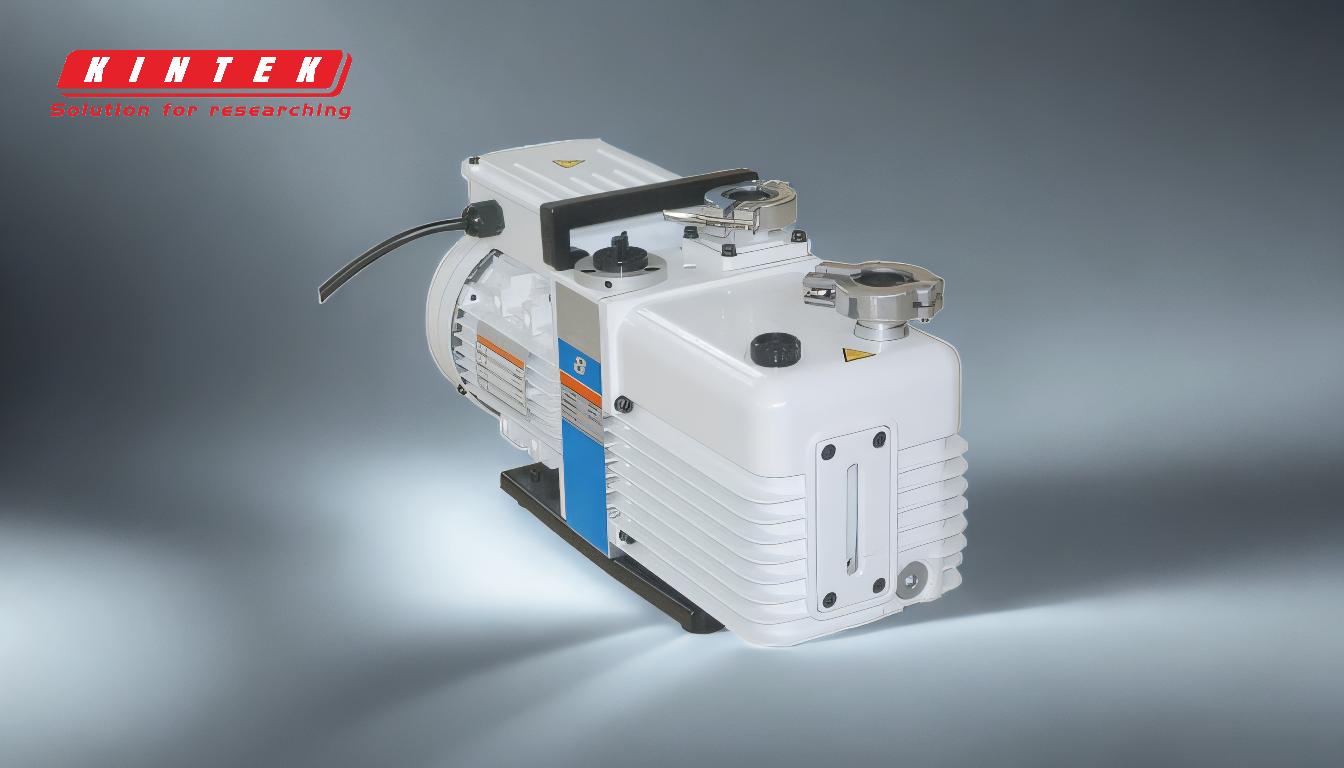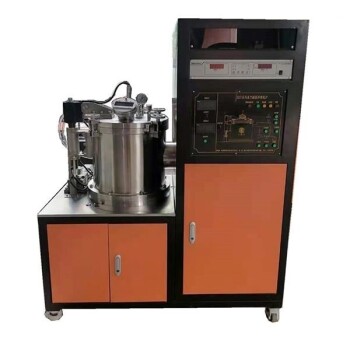The life expectancy of a vacuum pump depends on several factors, including its type, application, maintenance practices, and operating conditions. There is no universal lifespan for all vacuum pumps, as their longevity varies significantly based on these factors. For instance, high and extremely-high vacuum pumps like turbomolecular or ion getter pumps may have different lifespans compared to rough and medium vacuum pumps. Proper maintenance, chemical compatibility, and operating conditions play a crucial role in determining how long a vacuum pump will last. Additionally, the initial quality of the pump and its suitability for the intended application are critical considerations. Below, the key factors influencing the life expectancy of a vacuum pump are explained in detail.
Key Points Explained:

-
Type of Vacuum Pump
- Different types of vacuum pumps have varying lifespans due to their design and operating principles.
- High and Extremely-High Vacuum Pumps: Pumps like turbomolecular or ion getter pumps are designed for specialized applications and often have longer lifespans if maintained properly. However, they require more frequent and specialized maintenance.
- Rough and Medium Vacuum Pumps: These pumps, such as rotary vane or diaphragm pumps, are generally more robust but may have shorter lifespans if used in demanding applications.
- The technology used in the pump (e.g., momentum transfer or entrapment) also affects its durability and suitability for specific gases, which in turn impacts its life expectancy.
- Different types of vacuum pumps have varying lifespans due to their design and operating principles.
-
Application and Operating Conditions
- The application of the vacuum pump significantly influences its lifespan.
- Chemical Composition of Gases: Pumps used with corrosive or reactive gases may degrade faster unless they are chemically compatible with the gases being pumped.
- Vacuum Level and Flow Rate: Pumps operating at their maximum capacity or under extreme vacuum levels may experience more wear and tear, reducing their lifespan.
- Operating Environment: Factors like temperature, humidity, and exposure to contaminants can accelerate wear or damage to the pump.
- The application of the vacuum pump significantly influences its lifespan.
-
Maintenance Practices
- Regular and proper maintenance is critical to extending the life of a vacuum pump.
- Maintenance Frequency: High-performance pumps often require more frequent maintenance to ensure optimal performance.
- Maintenance Quality: Using the correct procedures and replacement parts during maintenance can prevent premature failure.
- Lubrication: For pumps that require lubrication, using the right type and amount of lubricant is essential to minimize wear.
- Regular and proper maintenance is critical to extending the life of a vacuum pump.
-
Initial Quality and Design
- The quality of the vacuum pump at the time of purchase plays a significant role in its longevity.
- Material Quality: Pumps made from high-quality, durable materials are more likely to withstand harsh operating conditions.
- Design and Engineering: Well-designed pumps with robust engineering are less prone to mechanical failures.
- Manufacturer Reputation: Pumps from reputable manufacturers often have better reliability and longer lifespans due to rigorous testing and quality control.
- The quality of the vacuum pump at the time of purchase plays a significant role in its longevity.
-
Cost Considerations and Efficiency
- The lifetime cost of a vacuum pump, including purchase price, maintenance, and operational efficiency, can indirectly influence its life expectancy.
- Higher Initial Cost: More expensive pumps may have better durability and efficiency, reducing long-term costs and extending their lifespan.
- Operational Efficiency: Efficient pumps reduce the strain on components, leading to less wear and longer service life.
- Staff Time and Expertise: Proper operation by trained staff can prevent misuse and extend the pump's life.
- The lifetime cost of a vacuum pump, including purchase price, maintenance, and operational efficiency, can indirectly influence its life expectancy.
-
Gas Type and Volume
- The type and volume of gas being pumped can affect the pump's lifespan.
- Gas Compatibility: Pumps designed for specific gases (e.g., inert, reactive, or corrosive) will last longer if used within their intended parameters.
- Volume Size: Pumps handling large volumes of gas may experience more stress, leading to faster wear if not sized correctly for the application.
- The type and volume of gas being pumped can affect the pump's lifespan.
-
Location and Installation
- The physical location and installation of the pump can impact its longevity.
- Environmental Conditions: Pumps installed in clean, controlled environments are less likely to suffer from contamination or damage.
- Proper Installation: Correct installation, including alignment and connection to the system, ensures the pump operates efficiently and reduces mechanical stress.
- The physical location and installation of the pump can impact its longevity.
In conclusion, the life expectancy of a vacuum pump is not a fixed value but depends on a combination of factors such as pump type, application, maintenance, operating conditions, and initial quality. By carefully selecting the right pump for the intended use, adhering to proper maintenance practices, and ensuring optimal operating conditions, users can maximize the lifespan of their vacuum pump and reduce long-term costs.
Summary Table:
| Factor | Impact on Lifespan |
|---|---|
| Type of Vacuum Pump | High-vacuum pumps (e.g., turbomolecular) may last longer but require specialized care. |
| Application & Conditions | Corrosive gases or extreme vacuum levels can reduce lifespan. |
| Maintenance Practices | Regular, high-quality maintenance extends pump life. |
| Initial Quality & Design | High-quality materials and robust engineering ensure durability. |
| Gas Type & Volume | Incompatible gases or excessive volumes can cause stress and wear. |
| Location & Installation | Clean environments and proper installation reduce wear and damage. |
Maximize your vacuum pump's lifespan—contact our experts today for tailored advice!











